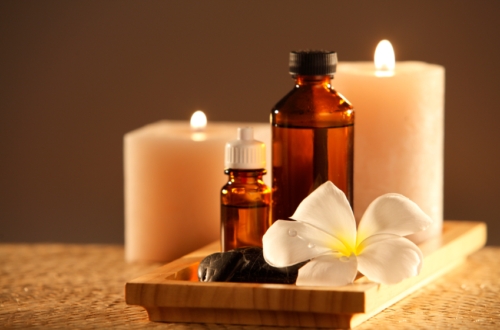 Essential oils for anxiety and other ailments have been used by many cultures dating as far back as 4500 BCE in Egypt and 2697 BCE in China.
Essential oils for anxiety and other ailments have been used by many cultures dating as far back as 4500 BCE in Egypt and 2697 BCE in China.
Indian Ayurveda has been around for over 3,000 years and Vedic literature lists over 700 ingredients for use in healing, including cinnamon, ginger, myrrh, and sandalwood.
The Egyptians had a well-known herbal preparation, Kyphi, which was a mixture of 16 flowers and herbs that they used as incense, perfume, and medicine.
The Greek physician Hippocrates (460–377 BCE), known as the Father of Medicine and who gave us the Hippocratic oath that new doctors take to this day, documented the effects of over 300 plants on the human body and mind.
The uses of essential oils varied from culture to culture and region to region, ranging from religious reasons to healing efforts. It’s not known exactly when essential oils became popular for healing many conditions of the mind and body. The earliest evidence that plants were used for healing was found in Lascaux, France where cave paintings hint at medicinal plants being used in everyday life. This evidence has been carbon-dated to at least 18,000 BCE.
What Is Anxiety?
Your heart races, your mind races, you have palpitations and cold sweats, you feel dizzy and lightheaded, and you have sleepless nights, headaches, and a tightness in your chest that won’t go away. You’re convinced that you’re having a heart attack or are going to die, but what these symptoms may really indicate is anxiety, and in its extreme form, panic attacks.
Anxiety disorders are the most common mental illness in the U.S. with a reported 40 million adults suffering from it to some degree (1). A number of factors contribute to anxiety, including genetics, brain chemistry, life experiences, and personality. Examples of anxiety disorders include generalized anxiety disorder, social phobia, and separation anxiety disorder; some people even have a number of them at the same time.
There is, however, help and treatment available, and that can start at home with the use of essential oils for anxiety and panic attacks to bring down the stress of both.
What Is an Essential Oil?
Essential oils are the concentrated “essence” of plants. All parts of the plant are used, including the seed, trunk, leaf, fruit, and flower. Every essential oil has a different chemical composition that has varied effects on the central nervous system and other systems of the body and mind. They may provide solutions to some physical and emotional ailments, and though they’re not quite mainstream yet, their use is gaining popularity.
When it comes to creating essential oils, there are two basic types of extraction:
1. Distillation:
This is the most common method for most essential oils, and it uses steam, steam and water, or just water, plus pressure to distill the oil from the plant. The oil molecules evaporate with the water and go through a cooling system, and when they condense, the oil separates from the water and is collected. A floral water (hydrosols) is also produced, which has its own beneficial uses, especially for the skin.
2. Expression:
Citrus oils are often extracted through expression, or cold pressing. The rind of the fruit is first warmed up in hot water to make it more open to being squeezed. After, it’s pressed between two blocks, one side of which has a sponge, and then the oil is squeezed out of the sponge. By using this process, technically the resulting liquid is called an essence, though it’s mostly referred to as essential oils.
With cold-pressed oils you need to consider the crop source, since citrus fruits are heavily sprayed with pesticides which can filter into the oil and then into you. Be a savvy consumer when buying citrus oils. If you aren’t sure where to start, try Doterra essential oils for anxiety; they’re a reliable source of quality oils, and go through a rigorous testing process using the strict CPTG (certified pure therapeutic grade) quality protocol.
How Can Essential Oils Help Anxiety and Panic Attacks?
Aromatherapy can bring relief due to the calming and relaxing properties of certain essential oils, and anxiety is one of the key ailments that aromatherapy helps with (2). There are guidebooks that list every herb and plant plus the ailments and symptoms they help to ease, and research is being done to provide concrete scientific evidence to the efficacy of essential oils. For example, lavender oil is known to calm the central nervous system, aid in better sleep, and ease anxiety. It’s found in body lotions, sprays, and many other cosmetic and well-being recipes.
The mechanism of action that allows essential oils to help treat anxiety all has to do with the limbic system in the brain. Among many other things, the limbic system is involved with your emotions, memory, stress, and sense of smell. When you inhale the scent of an essential oil, your limbic system receives signals and you react. So if you find an essential oil that you like, or that triggers a pleasant or calming memory, you enjoy a sense of peace or happiness.
With a little research, you can discover the best essential oil that will soothe your mind, slow down your breathing, and help bring a sense of calm to the entire body.
Top 7 Essential Oils for Anxiety
1. Lavender
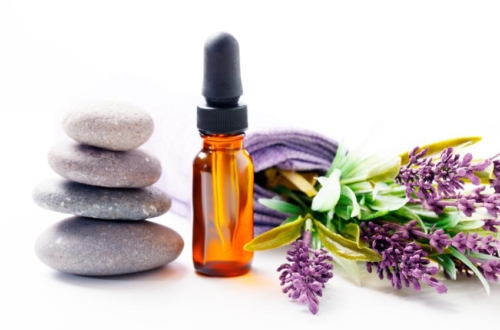
Lavender oil is the most common and well-known of the essential oils. It’s generally safe to add it to a list of essential oils for anxiety in children because it’s gentle, but if you’re using it frequently on your child, you might want to be cautious anyway, as it may have an effect on the hormone levels of prepubescent boys. It has a calming effect on the nervous system and helps with sleepless nights, restlessness, panic attacks, irritability, and overall nervous tension.
2. Rose
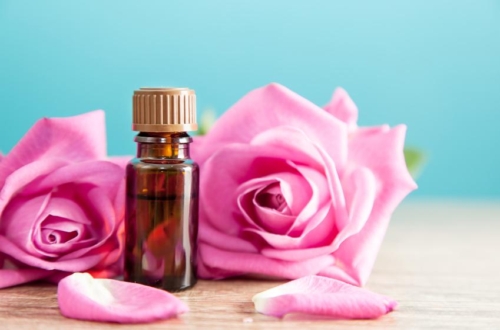
Rose has calming effects on what people refer to as the “emotional heart.” It eases menopausal and menstrual irritability, and is the second most popular essential oil after lavender for easing anxiety and panic attacks. It can also be used to alleviate grieving and shock.
3. Bergamot
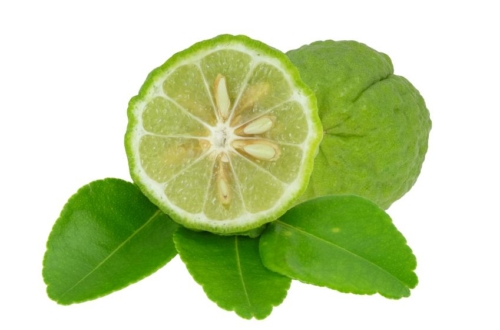
Bergamot has an incredibly refreshing scent because it’s a part of the citrus family. It’s what gives Earl Grey tea its unique aroma and flavor, and it’s used to treat depression because it has an energizing effect. At the same time, it helps with insomnia because it reduces agitation.
4. Vetiver
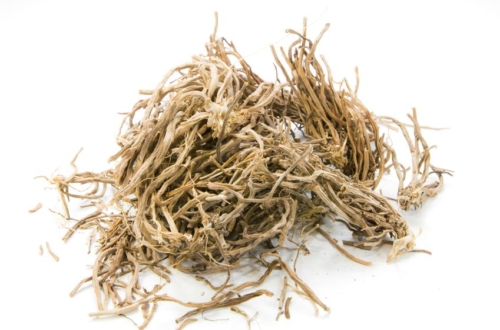
Vetiver is considered a sacred herb in some cultures because it’s highly prized for its uplifting, soothing, and healing properties. It’s been known to treat insomnia.
5. Chamomile

Used as tea to promote relaxation and sleepiness, chamomile is also used in aromatherapy to induce tranquility and calm, and ease symptoms of anxiety.
6. Clary Sage
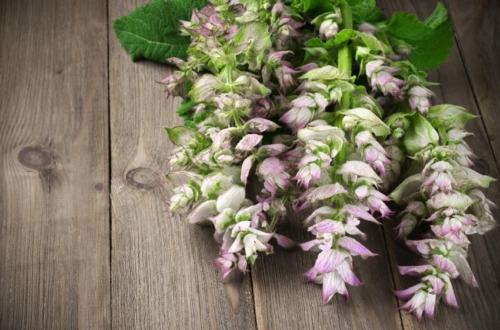
Excellent as a blood pressure regulator, Clary Sage also has well-known anxiety-fighting properties, and works well during times of insomnia, depression, and stress (3).
7. Neroli
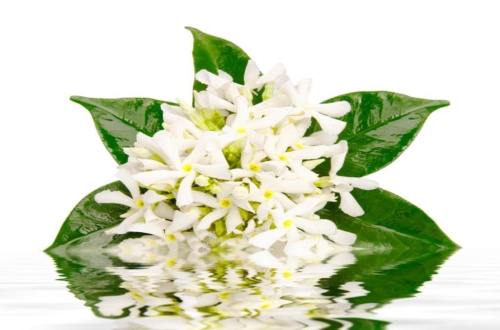
Neroli comes from the bitter orange tree and has an intoxicatingly sweet aroma that fills you instantly with calm. It’s also often used in the fragrance and perfume industry.
If you aren’t sure where to start, try Doterra essential oils for anxiety; they’re a reliable source of quality oils.
How to Use Essential Oils for Anxiety
There are three main ways to use essential oils for anxiety.
- The best method for anxiety is inhaling it directly from the bottle. As mentioned, the scent of a pleasant or calming essential oil will activate your brain’s limbic system, interrupting the receptors that cause anxiety.
- Next is topically. Most essential oils are mild enough for direct skin contact, but read the label to be sure. Some shops that prepare essential oils offer roll-ons that you can carry in your bag to use when needed.
- Another option is to use an aromatherapy diffuser. This works by adding a few drops of the oil to water that is placed in the diffuser’s vessel. It then mists the water and oil combination into the air where you breathe in the particles. It gets into your system and makes your house smell good to boot.
Read Next:
